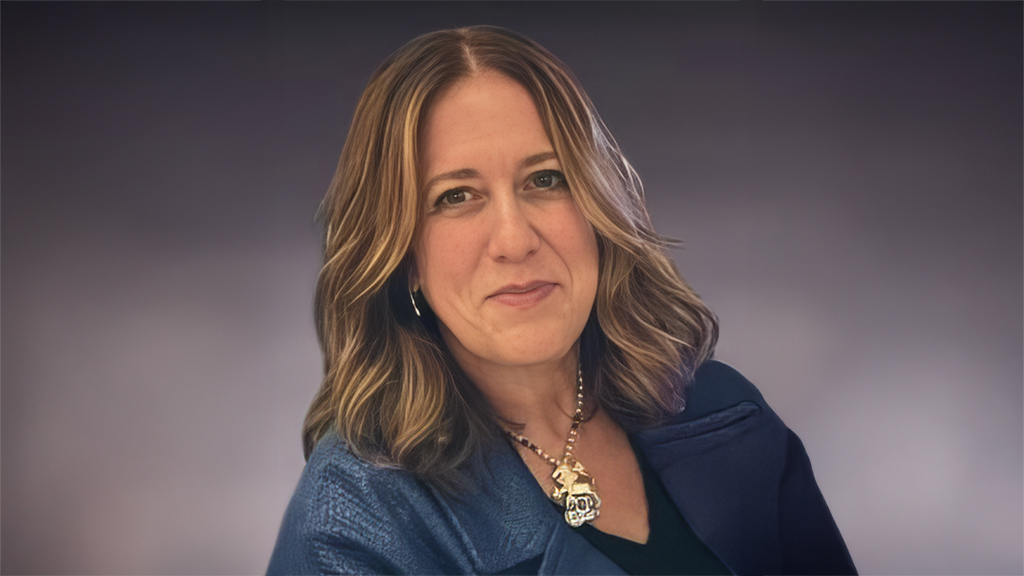Opinion
PARNASSAH, PARNASSAH TIRDOF
Martyrdom isn’t a Jewish value: Rethinking nonprofit leadership and sustainability
In the world of nonprofit leadership, particularly within the Jewish community, a critical yet often overlooked issue persists amongst nonprofit executive directors: the belief that self-sacrifice, even to the detriment of one’s well-being, is a hallmark of commitment and success — even though research and best practices indicate otherwise.
My tenure at Career Up Now, where our mission is to empower college students and young professionals to advance their careers while incorporating Jewish values into their lives, exemplified this flawed perspective. Having led an organization as founder and executive director without a sustainable income, I’ve experienced the pitfalls of this approach firsthand. However, recent introspections and conversations have starkly illuminated the misalignment between such self-sacrifice and the core values of Jewish tradition and effective leadership.
To die for
Martyrdom is traditionally seen as the ultimate sacrifice for one’s faith or principles. In Judaism, however, its scope is narrowly defined, typically reserved for scenarios of “al pi kiddush Hashem,” sanctifying God’s name under extreme circumstances. Importantly, Jewish communal work does not qualify as one of these scenarios. This delineation is vital, underscoring that dedication to a cause should not necessitate compromising one’s health or well-being. Jewish teachings do promote balance, community support and preservation of life, values that stand in stark contrast to self-endangering sacrifices for professional achievements (Babylonian Talmud, Pesachim 25b; Shulchan Aruch, Yoreh De’ah 157).
Through discussions with numerous nonprofit leaders over eight years, I’ve observed a clear divide: some sacrifice their well-being for their organization’s gain, while others maintain a balance between their health and equitable compensation and their work. This could be a chicken or the egg situation — maybe the fact that these organizations are already thriving is why the leaders can afford balanced workloads and good pay. Either way, the contrast highlights not only different management philosophies but also suggests a correlation between leader well-being and organizational success.
Hatzlacha (success) doesn’t necessarily equal parnassah (livelihood)
The moment of truth regarding my own personal sacrifices came with a stark revelation one year upon receiving my W-9. After dedicating over 40 hours weekly to the mission I fervently believed in, the document laid bare the reality: the amount I took in compensation (not the amount in my contract) was a scant $8,000, with half of this sum going to health insurance benefits. This revelation wasn’t just a personal financial alarm, but the catalyst for a moment of profound professional introspection.
Eight years ago, Career Up Now had submitted a strategic growth plan to a major foundation. Our ambition then was to scale our impact to match the operational scope of a $2.5 million organization.
Remarkably, I found we were meeting our engagement and impact metrics while at the same time operating on a shoestring budget of $250,000. This incongruence between our achievements and our internal financial sustainability were illuminated for me in this moment. While we were successful by programmatic standards, our financial model had not evolved correspondingly, placing not just the organization but also my personal well-being at risk.
This situation was mirrored in conversations with peers and highlighted by industry experts. Five years ago, during a memorable panel at Upstart’s Collaboratory, a figure in Jewish philanthropy flagged the issue of non-livable wages for Jewish nonprofit leaders. Despite these warnings and evident industry patterns, I — driven by a misplaced sense of martyrdom — continued on this unsustainable path.
The realization that martyrdom is not a tenet of Jewish values, especially when it jeopardizes personal welfare and organizational viability, was a turning point. These observations echoed the discussion among philanthropic leaders about widespread undercompensation. Such realizations, juxtaposed with our operational successes, called for a drastic reevaluation of our approach to sustainability and compensation. It became evident that to truly honor the mission of Career Up Now and the community we serve, a reassessment of our financial strategy and my “money mindset” was imperative, aligning it with both Jewish ethical standards and proven business practices that ensure sustainability and respect for all stakeholders.
Guidance from Mike Michalowicz’s 2014 book Profit First catalyzed a shift in perspective, emphasizing the necessity of prioritizing financial health to ensure organizational effectiveness. Adopting this methodology has revolutionized both my personal well-being and our nonprofit’s operational ethos, reinforcing the interdependence of leader well-being and organizational success.
The nexus between an executive director’s personal financial security and their capacity to lead a nonprofit effectively is well established. Embracing Jewish ethical imperatives, it is vital to recognize that caring for our community includes ensuring the financial well-being of our leaders. As such, integrating financial wellness into the leadership model is not just prudent management; it reflects a holistic commitment to the values of community stewardship and responsible governance. This approach aligns with insights from both the Nonprofit Finance Fund and Nonprofit Quarterly, advocating for a leadership model that balances mission-driven service with necessary personal financial stability to foster sustainable organizational success.
Martyrdom, especially when misconstrued as necessary for organizational success, contradicts Jewish values, which champion life and well-being. As we finalize our upcoming five-year growth plan, I am guided by a newfound philosophy underscored by Michalowicz’s wisdom: Prioritize profit and personal well-being to fortify our mission. This approach is not merely strategic; it is a moral imperative, aligning our operations with our values and ensuring our sustained ability to serve. By championing financial health and sustainable practices, we honor our commitments, embody Jewish teachings and pave the way for a future where our organizations, and those who lead them, can truly flourish.
Bradley Caro Cook is the founder and executive director of Career Up Now, whose mission to is to empower college students and young professionals to advance their careers while incorporating Jewish values into their lives. He is a member of the Schusterman ROI community, Birthright Israel Fellows and Nahum Goldmann Fellows, and is the creator of www.mediatehate.ai.













